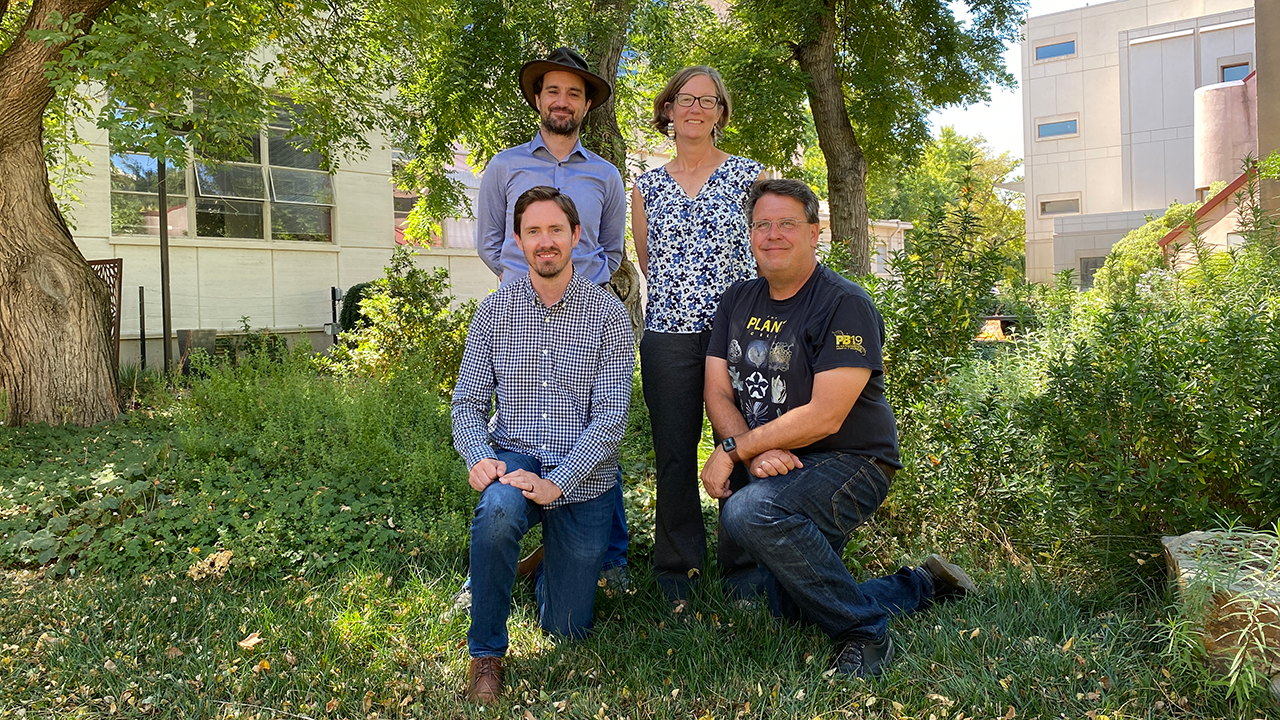
Four grad mentors lauded for ‘dedication and commitment’
Bailey, Kliebenstein, Crump & Ossola win Advising and Mentoring Award
Honest communication, real caring, encouragement – and making the time for all that – are among the essential ingredients for mentoring graduate students, according to four faculty members in the UC Davis Department of Plant Sciences recently commended for their advisory passion. (Professional secret: Sometimes it helps to act grumpy.)
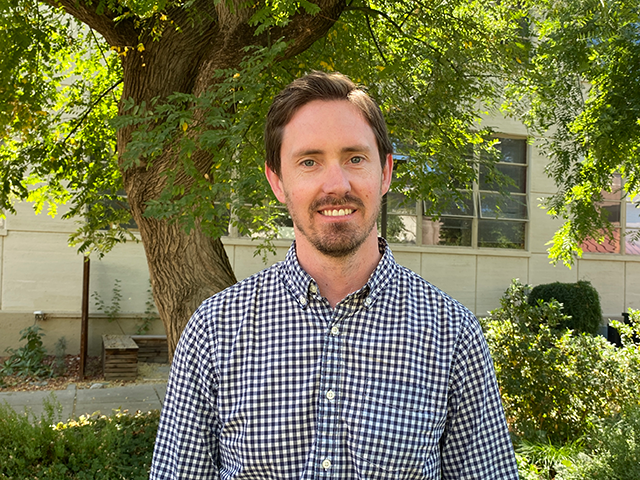
Brian Bailey, Dan Kliebenstein, Amanda Crump and Alessandro Ossola were honored by the UC Davis Graduate Program with the 2023 Advising and Mentoring Award. They were among 34 faculty recognized across the university.
We asked them for their insights into the graduate mentoring and advising world.
Q: What is the most important ingredient for being a good mentor to grad students?
Bailey: “One of the biggest and most important challenges of mentorship is being able to provide enough guidance and support to keep mentees on track and moving forward, but also allowing freedom for them to define and solve problems themselves, in order to develop into independent scientists. Finding the effective balance between these is important, and it changes depending on the individual."
Kliebenstein: “Constant communication that is honest to allow reassessment of where both individuals are at and where both want to get to and figuring out a way to get there.”
Crump: "Having a clear means of communication is key. Grad students know when I am or am not accessible and vice-versa. This ensures that we are having a great mentor-mentee relationship."
Ossola: “When I meet a student, I always ask first, ‘How are you doing?’ Caring and encouragement go very far in supporting academic performance and personal well-being. I show students my weaknesses and shortcomings, while I try to lead by example."
Q: How do you make time in your week to accommodate this level of dedication?
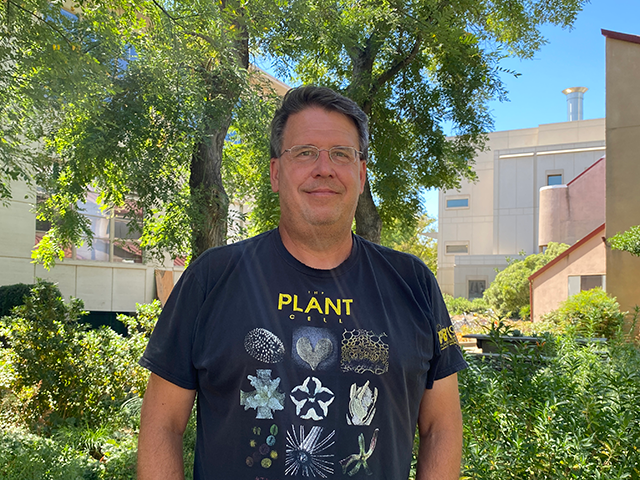
Bailey: “For me, it is simply a matter of scheduling out time and prioritizing it.”
Kliebenstein: “I maintain a grumpy demeanor to ensure that people do not want me on their committees; in this way, I have time for the mentoring and the science, which are more fun. But seriously, the science and mentoring take priority over committees and other commitments where my presence is likely not meaningfully needed.”
Crump: “I have some set office-hour-like times when my door is always open, and I communicate that with mentees. Communication is key, so that I can anticipate when I am needed.”
Ossola: “I try to be very well-organized with my workload, and I prioritize my check-in meetings with students every quarter. Sometimes, I think students’ schedules are overly packed – I tell them that 'less' is often 'more' – and I encourage my students to spend quality time for self-reflection and development.”
Q: What tips do you have for grad students to make this relationship successful?
Bailey: “Although cliché, communication and trust are critical. I encourage mentees to feel comfortable communicating openly when there are problems. There is often a tendency to hide problems out of fear of negative repercussions, but not solving problems promptly usually causes them to compound over time.”
Kliebenstein: “Remember that the other person is as much a human as you are and requires the same level of honesty, trust and belief to be successful as you desire for yourself.”
Crump: “Don’t assume we are too busy to help you, and then you avoid us! Yes, we are busy, but often, it is easier to solve a problem earlier than it is to solve it later.”
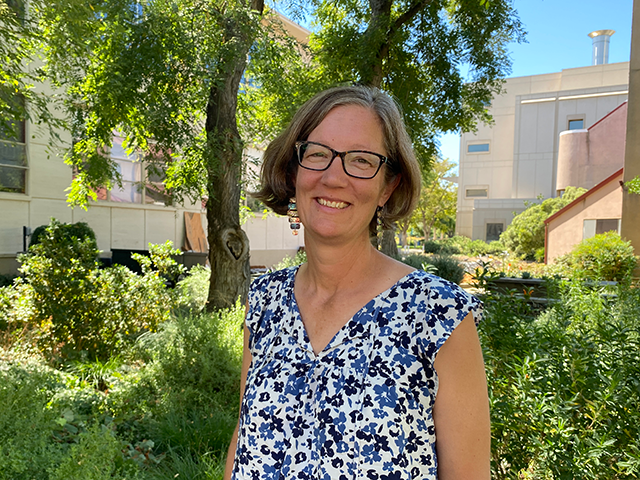
Ossola: “Find academic and life mentors who are able to listen and adjust their style to your needs. Mentorship is a bidirectional endeavor. Mentors should get as much as mentees do! Finally, become a mentor yourself. There are many people in need, and often the best way to learn is to teach.”
Advisors are focused on student growth
In naming this year’s top advisors earlier this month, the UC Davis Graduate Program commended them all “for their unparalleled dedication and commitment to the growth and success of others.” The awards come through a nomination process involving students and colleagues. Some of the comments from that process are included below.
Brian Bailey was commended for encouraging mentees “to talk about their problems and successes, and be mutually supportive of each other’s work,” especially during the height of the COVID-19 pandemic. His “willingness to fully invest in each mentee and their specific questions” also was noted. Bailey is an associate professor creating plant simulation tools to represent scales ranging from leaves to canopies. He works with the horticulture and agronomy graduate group.
Dan Kliebenstein was commended for using “creative, gentle and constructive questions to collaboratively guide each student to develop personalized solutions.” “He is invested in my personal success, even if that does not align with what is most beneficial for his career.” Kliebenstein is a professor who uses quantitative genetics and other fields to understand complex systems, with the aim of improving crop nutrition and disease resistance. He is part of the plant biology graduate group.
Amanda Crump was commended for encouraging students to be reflective, think in novel ways, seek justice through their work and strive for excellence. “Her calm, nonjudgmental and reassuring attitude, excellent instincts for what a student needs, and extensive knowledge of options and opportunities, make her the best mentor I have ever seen.” Crump is an associate professor of teaching, aiming to help marginalized people adopt agricultural technologies that lift them out of poverty. She works with the international agricultural development graduate group.
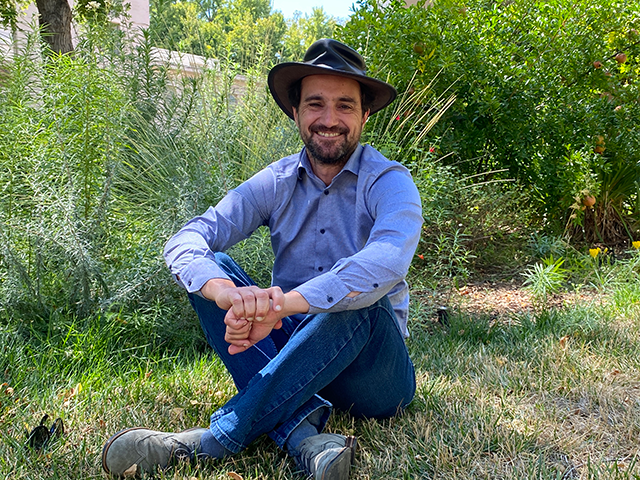
Alessandro Ossola was commended for being “a very accessible and caring advisor despite his incredibly packed schedule. His joy for mentoring his students really shows.” He also was noted for introducing students to networking and professional opportunities. Ossola is an assistant professor who uses a range of methods to find nature-based solutions for climate adaptation and urban sustainability. He is part of the environmental policy and management graduate group.
“Mentorship and advising are critical aspects of graduate student success,” said Jean-Pierre Delplanque, vice provost and dean of UC Davis Graduate Studies. “These faculty are truly living this mission through their energy and effort… We are so grateful to them for sharing their time and talents with our graduate students and postdocs.”
Related links
Graduate programs, including areas of specialization, in the UC Davis Department of Plant Sciences
Undergraduate programs, including undergrad majors and minors, in the Department of Plant Sciences.
Media Resources
- Trina Kleist, UC Davis Department of Plant Sciences, tkleist@ucdavis.edu, (530) 754-6148 or (530) 601-6846
